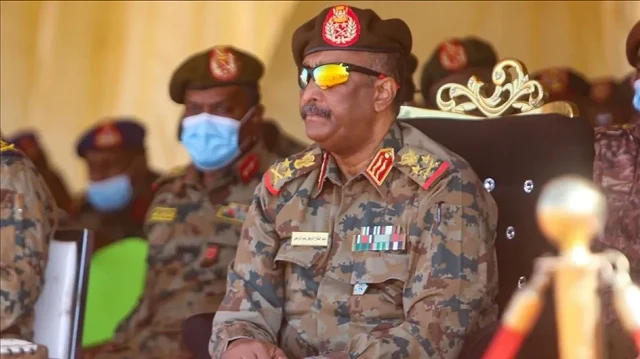Sudan - At the edge of a Libyan collapse

The start of a civil war caused by tension between RSF and Armed Forces of Sudan on April 15,2023, has led to the death of more than 150.000 people, displacement of nearly 12 million people, which the United Nations has called “the worlds largest humanitarian crisis”.
The civil war represents the latest chapter in a series of clashes and instability following the longtime president Omar Al-Bashir’s fall from power in 2019.
Widespread protests erupted against his almost three decades in power, leading the military to stage a coup against him.
A joint military-civilian government was then established only to be ousted in October 2021 through another coup. There were two names responsible for that coup: Gen Abdel Fattah al-Burhan- Head of the Armed forces and Gen Mohamed Hamdan Dagalo- leader of a Paramilitary authority RSF. (RSF-Rapid Support Forces)
In July, the RSF appointed a prime minister along with a presidential council — a step the military-backed government denounced as a “phantom government,” accusing the group of “ignoring the hardships of the Sudanese people.”
Now the Chairman of the African Union Commission Mahmoud Ali Youssouf, expresses concern that Sudan may face a Libya-style collapse, as the struggle between two competing governments drags the country closer to chaos and prolonged instability.
“We had that concern from the very beginning. We didn't want to have a dislocated country, where we see in many parts emerging governments while the central government is still there,” Mr Youssouf told The National in an interview in Abu Dhabi.
Since the overthrow of longtime ruler Muammer Qaddafi in 2011, Libya has remained fractured, with rival administrations and armed groups struggling for dominance. At present, authority is split between the UN-recognized Government of National Unity in Tripoli—headed by Prime Minister Abdel Hamid Dbeibeh and Presidential Council leader Mohamed Al Menfi—and the eastern-based Government of National Stability, backed by the House of Representatives and militarily controlled by Khalifa Haftar’s Libyan National Army.
This has caused parallel administrations to overlap claims to legitimacy and constant military control over territory,leaving the country devastated.
“We didn't want to see the Libyan scenario repeat itself in Sudan. The African Union position was very clear. We need to continue to work with the Sovereign Council under the presidency of Gen Abdel Fattah Al Burhan and try to bring on board all other forces in a kind of inclusive Sudanese-led dialogue,” said Mr Youssouf.
In the context of an international engagement, at the invitation of the United States, Ministers of Foreign Affairs of the United States, Egypt, Saudi Arabia, and the United Arab Emirates have gathered to discuss extensive consultations on the conflict in Sudan. The latest peace initiative proposed a three-month ceasefire as a first step, to be followed by the restoration of civilian governance.
The four nations announced that they had reached a “common framework of principles” to resolve the conflict. Sudan’s army-backed government, however, rejected the proposal, insisting that only the Sudanese people should determine the country’s future and refusing to be sidelined in shaping the postwar transition.
Reklam yükleniyor...
Reklam yükleniyor...







Comments you share on our site are a valuable resource for other users. Please be respectful of different opinions and other users. Avoid using rude, aggressive, derogatory, or discriminatory language.